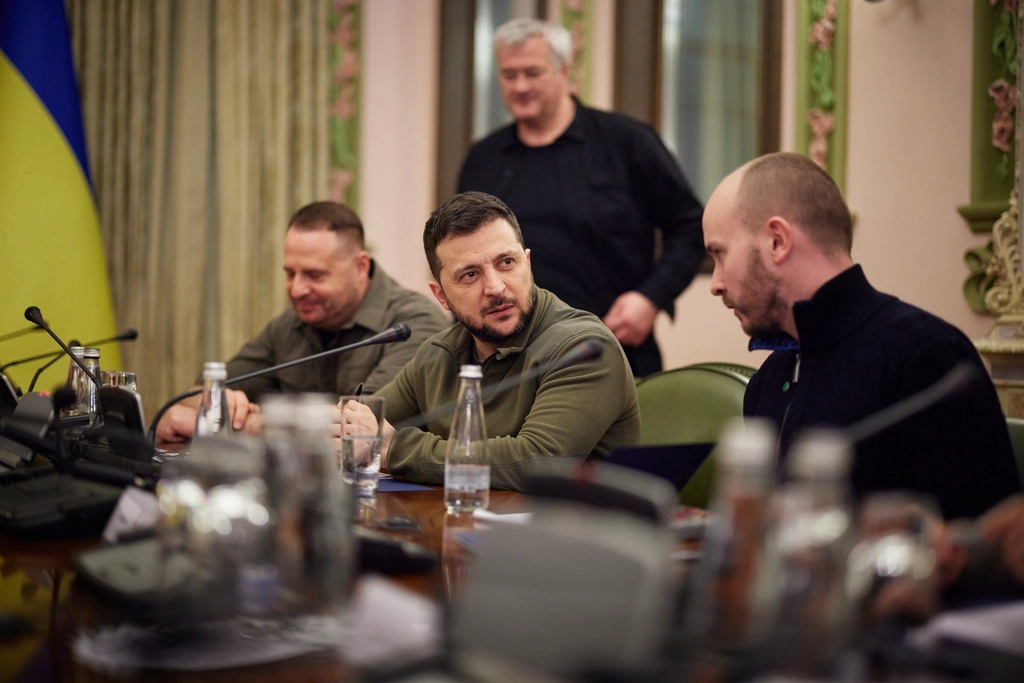Effective deterrence hinges on credible commitment: the aggressor must believe the cost of their actions will far outweigh any gain. Europe’s handling of Ukraine has been a masterclass in the opposite—a chronic failure to project resolve, effectively paving the way for Russia’s invasion.
Years of Weak Signals: Inviting Aggression
Russia’s incremental land grabs—in Georgia, Moldova, and Crimea—were met with European hand-wringing and symbolic consequences. Strongly worded condemnations without real penalties didn’t deter; they invited escalation, signaling Europe’s apathy toward Eastern European security.
The Pre-Invasion Paralysis: A Failure of Resolve
When U.S. intelligence exposed Russia’s invasion plans, the expectation was that even Europe might still have enough sense to commit so staunchly to Ukraine’s defense that Russia would not go ahead. Instead, leaders waffled, prioritizing “de-escalation” over deterrence. The implicit message—“This isn’t our fight”—gave Putin a free pass.
Worse, Europe publicly restricted Ukraine’s self-defense, forbidding strikes on Russian soil with Western weapons—a move both strategically incoherent and legally dubious. This wasn’t just hesitation; it was a blatant signal of fear, undermining Ukraine’s survival.
Germany’s Emblematic Timidity: From Helmets to Hesitation
Germany’s response epitomized Europe’s failure. To Ukraine’s desperate call for support, the infamous “5,000 helmets” offer was a joke. The Ukrainian ambassador was criticized for being rude and not grateful enough. Ex-Chancellor Scholz’s refusal to send Taurus missiles—fearing Russian retaliation—was a strategic disaster too. Even former UK Defence Secretary Ben Wallace blasted Scholz as “the wrong man in the wrong job at the wrong time.”
The lack of commitment wasn’t just implicit. Rolf Mützenich, head of Germany’s ruling SPD, explicitly rejected NATO membership for Ukraine:
“It does little good for NATO to give security guarantees it neither can nor wants to uphold. With Ukraine or Georgia in NATO, the alliance would overextend itself, escalate tensions, and risk a war that’s no longer ‘cold.'”
This isn’t just incoherence—it’s stupidity: do they think the Russiansdon’t read the papers. Scholz refuses to say Germany wants Ukrainian victory, clinging to the hollow mantra: “Russia must not win, and Ukraine must not lose.” This isn’t nuance—it’s a psychological boost for Moscow and a betrayal of Kyiv.
The Audacity of Blaming the U.S.
Despite this record of half-measures, European leaders dare to criticize the U.S. for “not doing enough.” This from nations that failed to deter Russia, prioritized their own anxieties, and left Ukraine to fight with one hand tied. The U.S., which warned Europe for decades to take defense seriously, now faces lectures from free-riders. Ex-Chancellor Scholz didn’t even offer a thank-you after President Zelenskyy’s speech in the German parliament. But gosh, wasn’t Trump rude for telling Zelenskyy he didn’t have the right cards?
Weakness Begets War
Europe’s Ukraine policy is a cautionary tale in failed deterrence. Weak responses to Georgia and Crimea, pre-invasion dithering, and Germany’s paralysis emboldened Putin. If Europe won’t commit to Ukrainian victory, it should stop pretending to care about a “rules-based order”—and prepare for the next invasion. Let’s hope the new German government will be less dreamy and have more…sense?





